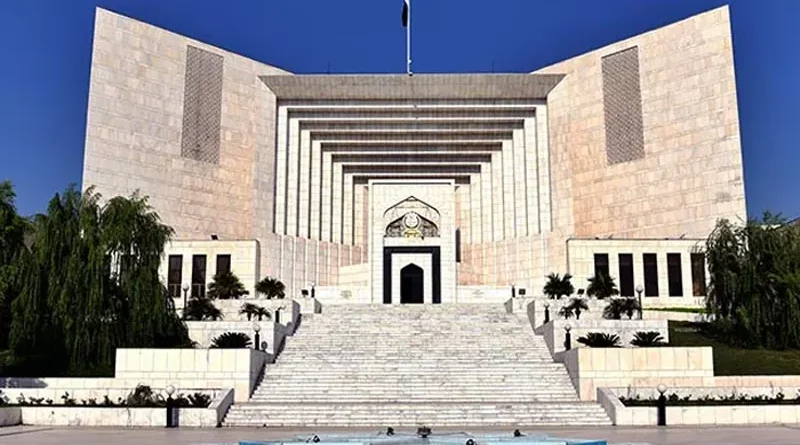Supreme Court stays proceedings of commission formed to probe audio leaks
ISLAMABAD: The Supreme Court Friday stayed the proceedings of a high-powered judicial commission formed to probe the audio leaks related to the judiciary.
It also suspended the federal government’s notification on the comission’s constitution.
The order was issued by a five-member SC bench headed by Chief Justice Umar Ata Bandial, Justice Ijaz ul Ahsan, Justice Munib Akhtar, Justice Syed Hasan Azhar Rizvi and Justice Shahid Waheed.
The bench issued the order while hearing separate petitions filed by Supreme Court Bar Association (SCBA) President Abid Shahid Zuberi, SCBA Secretary Muqtedir Akhtar Shabbir, Pakistan Tehreek-e-Insaf (PTI) Chairman Imran Khan and Advocate Riaz Hanif Rahi requesting to declare the commission’s formation illegal.
The order noted that the SCBA president’s lawyer pointed out the commission had already started functioning and issued an order on May 22 that its proceedings would be made public. The commission’s next meeting was scheduled for May 27 (tomorrow).
“In the circumstances, till the next date of hearing, the operation of the impugned notification No.SRO.596(I)/2023 dated 19.05.2023 issued by the Federal Government is suspended as is the order dated 22.05.2023 made by the Commission and in consequence thereof proceedings of the Commission are stayed,” it stated.
The federal government had last week constituted a judicial commission to probe the veracity of recent audio leaks and their impact on the independence of the judiciary.
The government constituted a three-member judicial commission, headed by a senior judge of the Supreme Court Justice Qazi Faez Isa and comprising Islamabad High Court Chief Justice Aamer Farooq and Balochistan High Court Chief Justice Naeem Akhtar Afghan.
The government said the audio leaks raised serious apprehensions about the independence of the judiciary in the public interest; therefore, it has constituted the commission under Section 3 of the Pakistan Commissions of the Inquiry Act, 2017.

